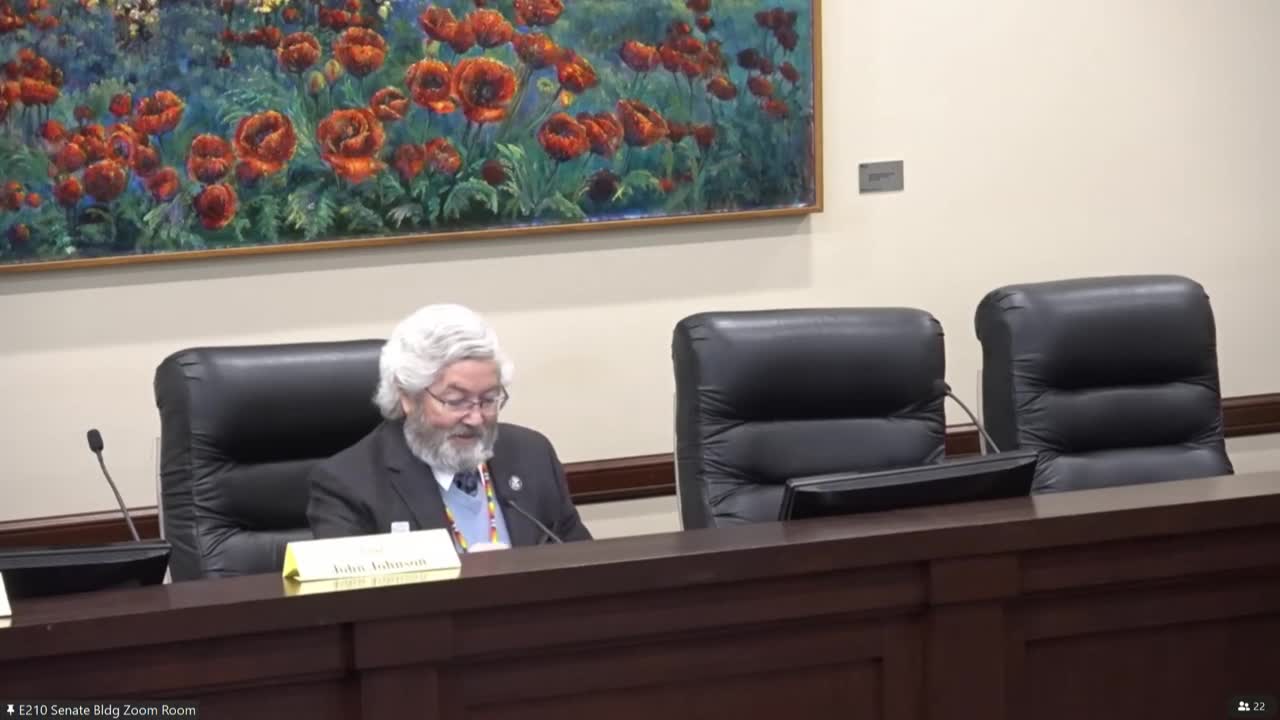Senate advances bill to change charter-school authorizer funding, sets year for phased implementation
Get AI-powered insights, summaries, and transcripts
Subscribe
Summary
Senate Education Committee voted 3–1 to send Senate Bill 267, which would alter how charter-school authorizers are funded and encourage multiple authorizers, out with a favorable recommendation after hours of testimony from supporters and critics.
Senate Education Committee on Feb. 14 approved, by a 3–1 vote, a recommendation that the full Senate consider Senate Bill 267, a measure sponsored by Senator Johnson to change how charter-school authorizers in Utah are funded and to encourage more entities to serve as authorizers.
The bill would shift part of the cost of authorizing charter schools from a single state-funded authorizer to a model in which authorizers could charge schools a per-pupil fee, phased in over time. “If we want a more vibrant and dynamic authorizer ecosystem in Utah, we simply must change the way we fund authorizers,” Senator Johnson said in presenting the bill, calling the change “long overdue.”
Supporters, including former state charter school board members and representatives of charter-school organizations, argued the current model concentrates authorizing work in a single state entity that is effectively providing a free service to schools. “It’s impossible to compete with free,” Howard Headley, former chair of the State Charter School Board, told the committee, saying many approved authorizers have not been able to gain traction because the State Charter School Board’s services are funded via a line item that schools do not pay for. Dr. David Forbush of Utah State University’s Center for the School of the Future said authorizers should be judged not just on compliance but on producing learning results for students.
Public testimony included charter leaders who supported the policy idea but urged the Legislature to refine the bill’s funding numbers before final passage. Kim Frank of the Utah Charter Network, who also chairs John Hancock Charter School, told the committee she had seen the proposal only recently and worried her school could be required to pay roughly $155,000 under the bill’s draft numbers: “My school would be forced now mandated to pay $155,000 for something that I’ve gotten for free to this point,” she said, asking for more time to work through the details. Royce Van Tassel of the Utah Association of Public Charter Schools also said the “basic architecture feels good” but warned that many schools would be nervous about the draft numbers.
Committee members and witnesses debated several numerical details that were not settled in committee, including a one-time $400,000 appropriation referenced in bill paperwork and a projected maximum impact figure of about $10,300,000. Witnesses and the sponsor acknowledged those budget estimates needed clarification and said the bill’s implementation is written to be phased in over a long period to allow interim work on the funding formula.
The motion before the committee — to send SB 267 out with a favorable recommendation — passed after discussion. The committee recorded three yeas and one nay; the committee chair announced the motion carried 3–1 with one senator recorded in opposition. The sponsor and several witnesses asked for continued work during the interim to refine per-pupil amounts, implementation details and transition protections for schools that prefer to remain with the State Charter School Board.
The bill received extended debate and substantial public testimony. Committee members repeatedly emphasized the goal of preserving charter-school innovation while building accountability. Several witnesses emphasized that the proposal is intended to create a “market” of competing authorizers who could each oversee fewer schools and provide both compliance oversight and active school improvement support.
SB 267 now moves to the full Senate for further consideration. Committee discussion indicated lawmakers plan amendments in coming weeks to clarify funding sources, set explicit buffers for small schools, and describe how existing authorizer–school contracts would be treated during any transition.
